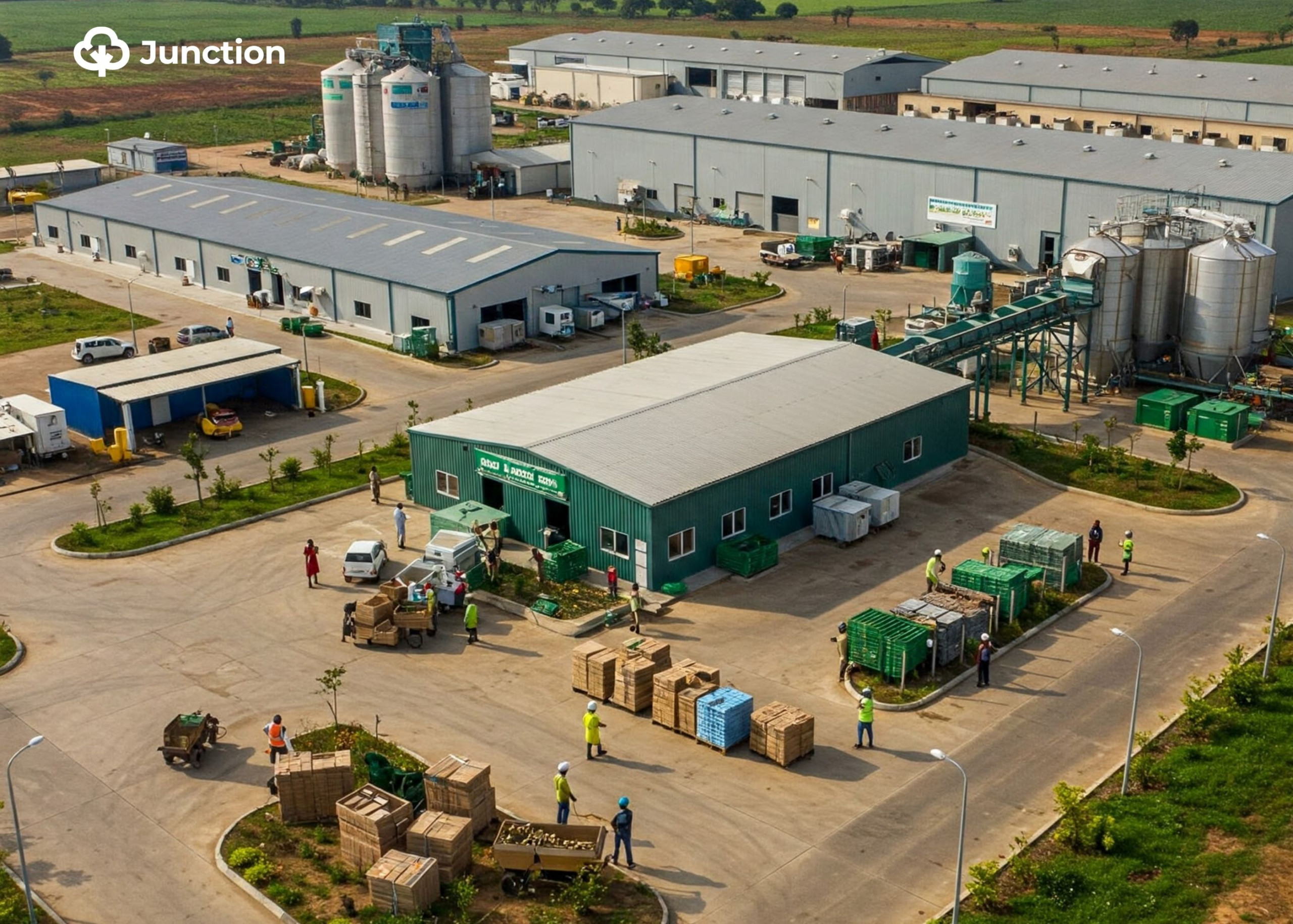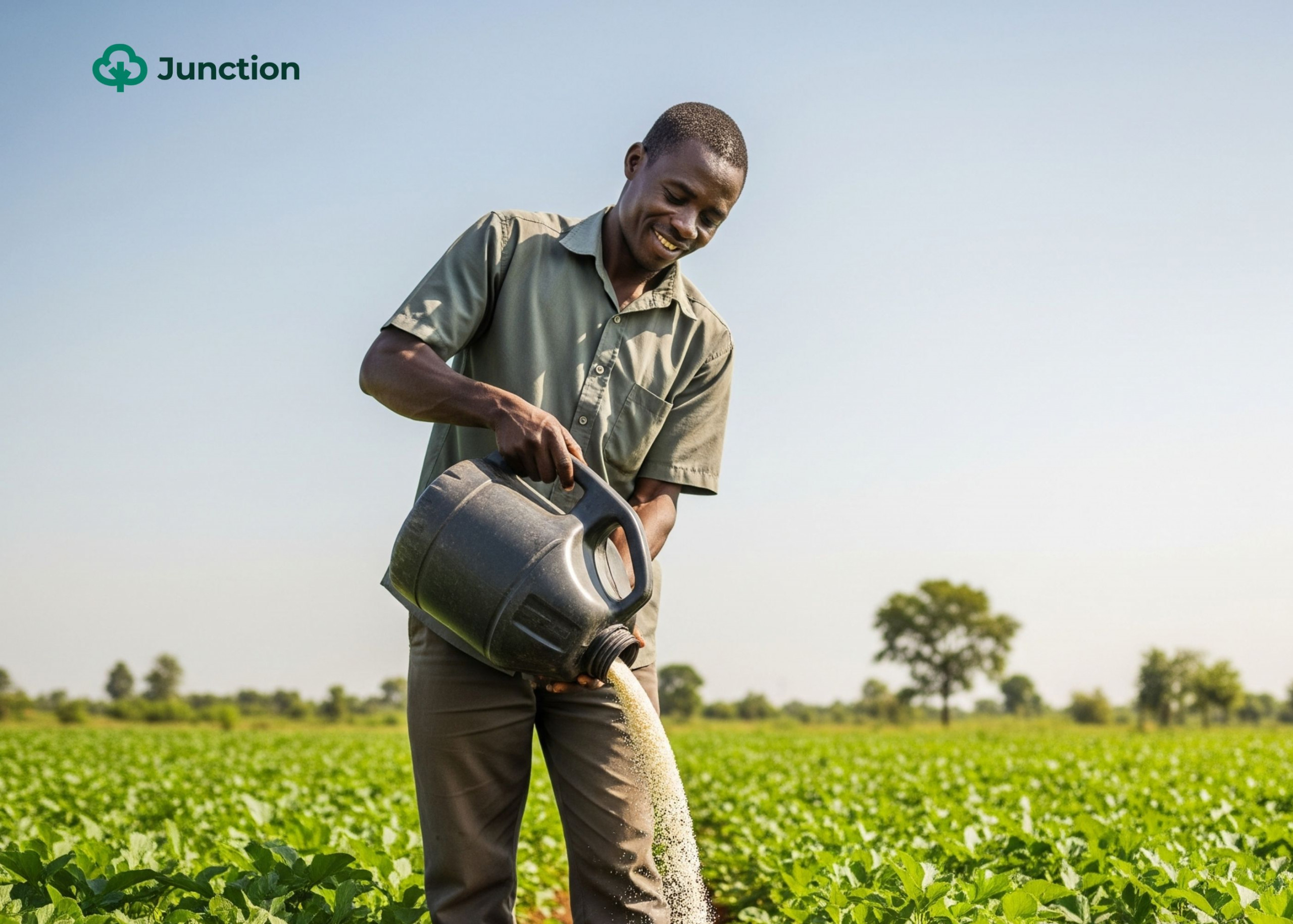The newly launched Special Agro-Industrial Processing Zones (SAPZ) can be a game changer for Nigeria’s agriculture.
The African Development Bank (AfDB) and other international partners, like the Islamic Development Bank (IsDB) and the International Fund for Agricultural Development (IFAD), finance it in collaboration with the Federal Government.
Analysing the laid-out plans indicates that this is not just another ambitious government programme that would not yield traceable results. It seems like a practical plan with the potential to directly address the challenges that Nigerian farmers face and ensure food security.
By matching solutions to problems, this article will explain how the SAPZ initiative solves real issues plaguing the Nigerian agrifood system.
1. Transforming rural farming in Nigeria:
The central idea of the SAPZ initiative is to create an area with concentrated solutions to the problem of growing food in Nigeria. With more than 80% of Nigerian farmers being smallholder farmers, practising in rural areas, these solutions could improve their livelihoods. These agro-industrial zones will be available in several states, allowing farmers to practice food production on a larger scale.
Another strategic move of the initiative is its focus on the agricultural comparative advantages of participating states, reducing the risk of failure and allowing for more concentrated interventions.
For example, Kano’s Kadawa Processing hub focuses on rice, tomatoes, and grains. Meanwhile, Kaduna will process maize, soybeans, ginger, and tomatoes. Cross River leverages existing strengths in cocoa, palm oil, cassava, and rice production.
These brilliant decisions allow farmers to explore and improve on practices they are familiar with. The same strategies will be adopted in other zones in Oyo, Ogun, Imo and Kwara States.
Farmers can easily access targeted training, better inputs, and adopt modern farming techniques through these zones.
2. Developing agricultural infrastructure:
The lack of accessible agricultural infrastructure is a serious problem for farmers in Nigeria. They can’t practice modern techniques because the right equipment and facilities are unaffordable.
The Nigerian agriculture sector still faces a huge mechanisation deficit. It has a very low tractor density of 0.27 tractors per 1,000 hectares, far below the Food and Agriculture Organisation’s (FAO) recommended minimum of 1.5 tractors per 1,000 hectares. Other mechanised farming equipment, like planters and harvesters, is also not easily accessible to farmers, especially those in rural areas. Some even lack access to basic infrastructures like clean water, electricity and a good farm-to-market road network connecting to the market.
The agro-industrial hubs and agricultural transformation centres, which are a crucial part of the SAPZ, are well-positioned to tackle this problem for farmers by equipping the zones with facilities needed for value addition. Facilities such as processing factories, storage facilities, reliable power, irrigated lands, farm-to-market access roads, and training centres. The agricultural transformation centres are expected to boost local processing, close market access limitations, and increase value addition in the food sector.
3. Financing opportunities:
Financing is another problem for farmers in Nigeria because of limited access to credit and grants. The financing and credit schemes from government institutions like the Central Bank and Bank of Agriculture (BOA) are either not available or not equitable, and the interest rates for loans from private lenders are too high.
The SAPZ initiative aims to tackle this problem with targeted intervention through partnerships with the Bank of Agriculture, the Bank of Industry and private investors.
The inability of farmers to sell harvested produce is also a problem affecting the growth of rural farming. The agro-industrial zones also feature aggregation facilities that play a crucial role in collecting, sorting, and initial handling of agricultural produce from farmers before it moves to processing hubs, closing market access limitations, and increasing income potential for farmers.
In phase 1, the Kaduna and Cross River states will host aggregation facilities within their production zones. These facilities are part of the integrated hub of commercial activity that encompasses production and logistics.
4. Provision of storage and processing facilities.
Wastage and loss of harvested produce are typical of the Nigerian agriculture sector. Nigerian farmers lose approximately N3.5 trillion annually (about $9 billion) to post-harvest loss, a problem threatening the livelihood of farmers and national food security. Nigerian farmers lose up to 50% of their fresh agricultural produce annually to post-harvest issues.
Most crops farmed in Nigeria are easily perishable or vulnerable to pests and diseases, forcing farmers to either sell their harvest at a low price within a short timeframe or risk huge losses. Aside from transportation challenges, the lack of storage and processing facilities is responsible for post-harvest loss.
The SAPZ initiative targets these problems by providing modern storage and processing facilities in the zones. This will help farmers increase the shelf life of their crops, eliminate post-harvest loss and also add value to their harvest, thereby ensuring higher income for farmers.
5. Value addition for farm produce:
Nigeria is losing billions in earnings due to the lack of processing of farm produce. Several cash crops, like cashew nuts and cocoa, are exported in their raw, unprocessed form to other countries, which then make billions from them.
Cashew Nuts, for example, are only exported in their unprocessed form to countries like Vietnam and India, earning Nigeria just a few million dollars, while a country like Vietnam makes billions of dollars from its processed products. Products like Cocoa, Tomatoes, Grains and other farm produce can also be processed to increase their value.
Aside from saving farmers’ harvest from perishing, the processing facilities in the SAPZ can increase the value of farmers’ harvests to ensure higher income and increased contribution to the national economy. This aspect of the initiative will not only contribute to increasing food production in the country but also to the economic diversification agenda of the country.
6. Enhancing export competitiveness:
Exportable farm produce in Nigeria is currently low due to issues related to quality, processing standards, and inadequate infrastructure for reaching international markets. This has historically led to the rejection of Nigerian produce abroad due to non-compliance with global standards.
The SAPZ’s modern processing factories, storage facilities, and reliable power will ensure that agricultural commodities undergo value addition and meet international quality and safety standards.
The development of export processing zones, port facilities, and export handling capabilities, as seen in the Cross River SAPZ, directly facilitates the movement of processed agricultural commodities to international markets, including neighbouring countries.
The integration of research and innovation through proximity to universities like Ahmadu Bello University and the University of Calabar will also contribute to producing higher-quality and more competitive agricultural products for export.
7. Improving agribusiness in rural areas:
Smallholder farmers who make up over 70% of Nigeria’s farming population are mostly in rural areas. While rural areas can be ideal for subsistence farming, their underdeveloped state presents a significant constraint on business and economic growth for agribusinesses.
Many potential agricultural activities are hampered by the lack of necessary infrastructure and support systems. Farmers often struggle with limited access to processing facilities, adequate storage, and reliable power, hindering their ability to add value to their produce and participate in more profitable segments of the value chain.
By bringing crucial facilities closer to farmers in rural areas, SAPZs aim to boost local processing, enhance value addition, and create a more vibrant agribusiness ecosystem in rural Nigeria. By making farmers integral partners in a thriving agricultural value chain, the initiative will bring about improved incomes and overall rural economic prosperity
Practical steps to benefit from the SAPZ initiative
As already highlighted above, the Special Agro-Industrial Processing Zones (SAPZ) initiative offers significant opportunities for farmers to enhance their livelihoods. To effectively leverage these benefits, farmers can take the following practical steps:
- Organise into cooperatives or associations: Joining farmer cooperatives or associations can strengthen your collective bargaining power when engaging with agro-processors within the SAPZs, ensuring fairer prices and market access.
- Engage with agricultural transformation centres: Actively participate with the Agricultural Transformation Centres located within or near the SAPZs. These centres are designed to support farmers with access to better inputs, modern farming techniques, and skill development [65, previously]. They can also provide linkages to research and innovation.
- Align production with SAPZ focus crops: Identify the priority value chains and focus crops for the SAPZ in your region (e.g., maize, soybeans, ginger, tomatoes in Kaduna; cocoa, cassava, rice in Cross River). Adjusting your production to meet the demands of the processing hubs can secure markets for your produce.
- Explore aggregation facility partnerships: Connect with the aggregation facilities being established within the production zones. These facilities serve as collection points and can streamline the process of getting your produce to processors, potentially reducing post-harvest losses and increasing the value of your produce.
- Be open to skill development: Take advantage of the training centres often established within SAPZs. These programs will offer valuable skills in modern farming practices, post-harvest handling, and even basic processing, increasing your efficiency and the value of your output.
By taking these proactive steps, farmers can become integral partners in the agro-industrial value chains fostered by the SAPZ initiative, leading to more secure markets, reduced losses, enhanced productivity, and improved incomes



